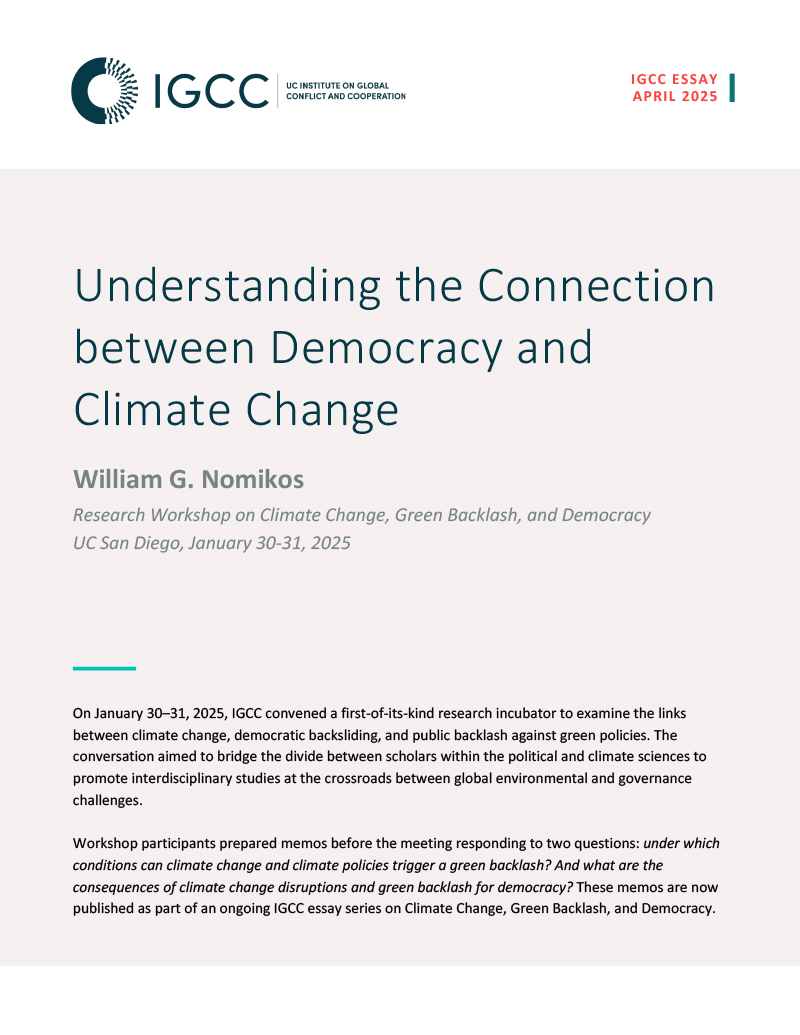Understanding the Connection Between Democracy and Climate Change

In this essay—part of an ongoing IGCC series on Climate Change, Green Backlash, and Democracy—William Nomikos, an assistant professor of political science at UC Santa Barbara, outlines his understanding of what factors trigger “green backlash,” and its consequences for both climate outcomes and democratic governance.
DownloadIn this essay, William Nomikos, an assistant professor of political science at UC Santa Barbara, outlines his understanding of what factors trigger and drive “green backlash”—i.e., resistance or opposition to environmental policies, climate initiatives, or broader sustainability efforts. Nomikos also outlines the consequences of green backlash for climate policies, voting behavior, and climate outcomes, and the profound consequences of climate-induced disruptions—including migration, food insecurity, economic crises, and rising inequality—for democratic governance.
_______________________
On January 30–31, 2025, IGCC convened a first-of-its-kind research incubator to examine the links between climate change, democratic backsliding, and public backlash against green policies. The conversation aimed to bridge the divide between scholars within the political and climate sciences to promote interdisciplinary studies at the crossroads between global environmental and governance challenges. Workshop participants prepared memos before the meeting responding to two questions: under which conditions can climate change and climate policies trigger a green backlash? And what are the consequences of climate change disruptions and green backlash for democracy? These memos are now published as part of an ongoing IGCC essay series on Climate Change, Green Backlash, and Democracy.